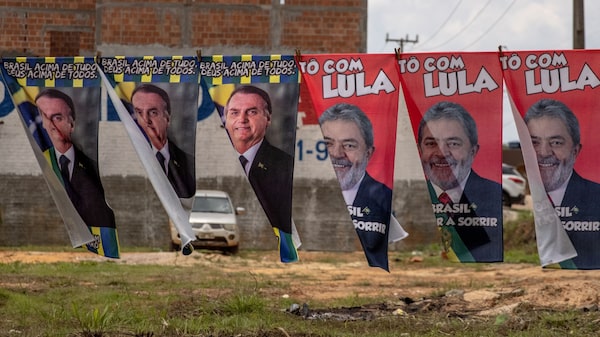Bloomberg — President Jair Bolsonaro’s choice of a business-friendly oil consultant to lead state oil company Petroleo Brasileiro (Petrobras) comes as a relief to investors, who are concerned about fuel subsidies after Russia’s invasion of Ukraine sent prices soaring.
Adriano Pires, a 30-year industry veteran who serves as a director at the Brazilian Center for Infrastructure, has defended Petrobras’s ability to set its own prices in recent op-eds and has described previous price fixing as populist. He has suggested a fund that would allow the government to temporarily subsidize fuel costs to accommodate shocks, without Petrobras having to pay for it.
“The nomination tends to be well received and alleviates part of the recent underperformance of Petrobras’s shares that we believe was due to the potential government interference in the pricing policy,” Conrado Vegner, an oil and gas analyst at Banco Safra SA, said in a note to clients on Tuesday.
Shares rose as much as 3.7% in Sao Paulo after the open, and were up about 1.7% at 32.13 reais at 11:11 a.m. local time.
Petrobras’s leadership turmoil underscores how difficult it is for developing countries -- where transportation expenses take up a larger chunk of family budgets -- to pass on costs to consumers when prices spike. Pires’s views about market-based pricing will be put to the test in an election year where politicians of all stripes are looking for someone to blame for pain at the pump. Pires didn’t immediately respond to requests for a comment.
Political Attack
Pires’ predecessor, Joaquim Silva e Luna, was pushed out after Bolsonaro repeatedly criticized Petrobras after hiking prices earlier this month. Frontrunner Luiz Inacio Lula da Silva, a former president, has been regularly attacking Bolsonaro over high pump prices ahead of elections in October.
Three of Petrobras’s last four chief executives lost their jobs amid fuel-price tension. Should Pires be confirmed at an April 13 annual meeting, he’ll become the 40th CEO since 1954.
“That means the company has been passing through significant external interference, which we believe creates risk around continuity of the company’s strategy,” Citigroup said in a note to clients on Tuesday. Luna was pushed out of his job even tough he was selling diesel and gasoline below international prices during the spike caused by Russia’s war in Ukraine.
Privatize Petrobras
Pires has been a supporter of foreign participation in Brazil’s oil industry and expanding exploration acreage, and previously worked at Brazil’s national oil agency. As a consultant he has regularly spoken at industry conferences and is familiar with the top executives in Brazil.
He had a role in setting regulation for a natural gas market in Brazil that was approved during the current administration, and has been in favor of market-based energy prices. During the 1990s, Pires was a superintendent at the recently-created National Agency of Petroleum, Natural Gas and Biofuels, the oil regulator known as the ANP.
When prices were rising last October, Pires wrote a column saying that it was “completely wrong” to think Brazil could sell discounted fuel just because it is an oil exporter, and that Brazil can’t “hide” subsidies by reducing Petrobras’s refinery gate prices. While the government remains in control of the company, it will continue to pursue monopolistic practices.
“The definitive solution will come with the privatization of Petrobras,” he wrote.
Bolsonaro himself has suggested privatizing the Rio de Janeiro-based producer so that the government doesn’t get blamed for fuel prices. A similar plan to sell the government’s controlling stake in state-controlled utility Eletrobras is planned for this year.
“It’s a routine thing, not a problem at all,” Bolsonaro told supporters in Brasilia on Tuesday when asked about the change at Petrobras, according to Veja.



